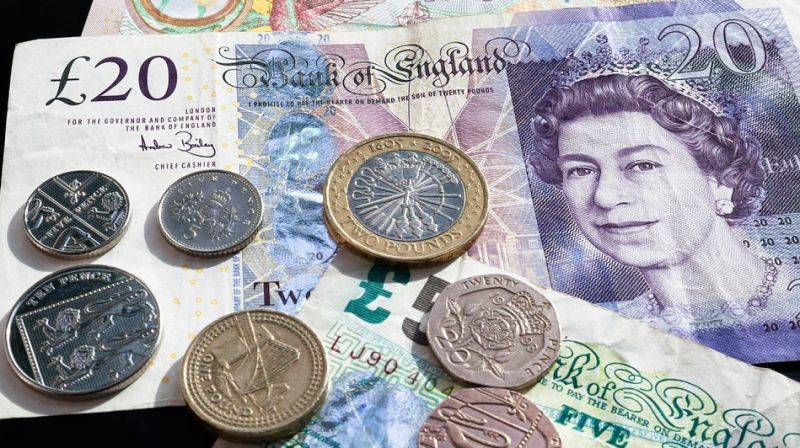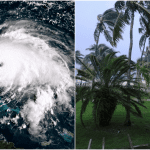The British pound sterling continues to plunge pushing the UK household spending growth to its slowest since 2014.
The pound has fallen by around 15 percent on a trade-weighted since June 2016 Brexit vote, pushing consumer price inflation to its highest in nearly four years.
Year-on-year spending growth dropped to 2.0 percent from 2.6 percent after expanding just 0.1 percent in the second quarter.
Few economists expect the Bank of England to raise interest rates before 2019 as inflation is forecast to fall next year once the impact of sterling’s weakness fades.
The British pound sterling continues to plunge pushing the UK household spending growth to its slowest since 2014.
The pound has fallen by around 15 percent on a trade-weighted since June 2016 Brexit vote, pushing consumer price inflation to its highest in nearly four years.
Year-on-year spending growth dropped to 2.0 percent from 2.6 percent after expanding just 0.1 percent in the second quarter.
Few economists expect the Bank of England to raise interest rates before 2019 as inflation is forecast to fall next year once the impact of sterling’s weakness fades.
The British pound sterling continues to plunge pushing the UK household spending growth to its slowest since 2014.
The pound has fallen by around 15 percent on a trade-weighted since June 2016 Brexit vote, pushing consumer price inflation to its highest in nearly four years.
Year-on-year spending growth dropped to 2.0 percent from 2.6 percent after expanding just 0.1 percent in the second quarter.
Few economists expect the Bank of England to raise interest rates before 2019 as inflation is forecast to fall next year once the impact of sterling’s weakness fades.
The British pound sterling continues to plunge pushing the UK household spending growth to its slowest since 2014.
The pound has fallen by around 15 percent on a trade-weighted since June 2016 Brexit vote, pushing consumer price inflation to its highest in nearly four years.
Year-on-year spending growth dropped to 2.0 percent from 2.6 percent after expanding just 0.1 percent in the second quarter.
Few economists expect the Bank of England to raise interest rates before 2019 as inflation is forecast to fall next year once the impact of sterling’s weakness fades.
The British pound sterling continues to plunge pushing the UK household spending growth to its slowest since 2014.
The pound has fallen by around 15 percent on a trade-weighted since June 2016 Brexit vote, pushing consumer price inflation to its highest in nearly four years.
Year-on-year spending growth dropped to 2.0 percent from 2.6 percent after expanding just 0.1 percent in the second quarter.
Few economists expect the Bank of England to raise interest rates before 2019 as inflation is forecast to fall next year once the impact of sterling’s weakness fades.
The British pound sterling continues to plunge pushing the UK household spending growth to its slowest since 2014.
The pound has fallen by around 15 percent on a trade-weighted since June 2016 Brexit vote, pushing consumer price inflation to its highest in nearly four years.
Year-on-year spending growth dropped to 2.0 percent from 2.6 percent after expanding just 0.1 percent in the second quarter.
Few economists expect the Bank of England to raise interest rates before 2019 as inflation is forecast to fall next year once the impact of sterling’s weakness fades.
The British pound sterling continues to plunge pushing the UK household spending growth to its slowest since 2014.
The pound has fallen by around 15 percent on a trade-weighted since June 2016 Brexit vote, pushing consumer price inflation to its highest in nearly four years.
Year-on-year spending growth dropped to 2.0 percent from 2.6 percent after expanding just 0.1 percent in the second quarter.
Few economists expect the Bank of England to raise interest rates before 2019 as inflation is forecast to fall next year once the impact of sterling’s weakness fades.
The British pound sterling continues to plunge pushing the UK household spending growth to its slowest since 2014.
The pound has fallen by around 15 percent on a trade-weighted since June 2016 Brexit vote, pushing consumer price inflation to its highest in nearly four years.
Year-on-year spending growth dropped to 2.0 percent from 2.6 percent after expanding just 0.1 percent in the second quarter.
Few economists expect the Bank of England to raise interest rates before 2019 as inflation is forecast to fall next year once the impact of sterling’s weakness fades.










